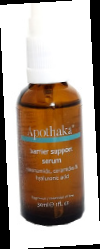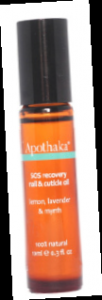
By: LekshmiSajeev
HOW TO LOOK AFTER SKIN IN HOT SUMMER MONTHS
by RAAKHI TANVI
Skincare is massively important in any type of beauty regime and that is perhaps even more so during the hot summer months.
One of my favourite brands is the award-winning Apothaka®, which is all about supporting healthy skin and promoting a less-is-more approach to skincare.
The driving force behind the successful beauty brand is founder and owner Natasha Dauncey, who uses carefully-selected ingredients for her products.
With a 20-year background in the pharmaceutical industry, the hardworking entrepreneur has studied product formulation, EU cosmetic regulation, and advanced skin science (CIBTAC level 4) to get a more rounded perspective towards skincare and skin health.
I caught up with Natasha to talk about her game-changing Apothaka® products and top summer skincare tips.

What was your motivation behind starting a skincare brand?
I’ve had a genuine interest in the real science behind ingredients and products. I was fed up with all pseudoscience and fear-mongering promoted by a lot of skincare brands and bloggers. I’ve also experienced sensitive skin myself, so I have been on my journey to find products that work well for my skin.
What is the best SPF (sun protection factor) skincare product?
The million-dollar question! Sunscreen is often a trade-off between good UVA/UVB protection and cosmetic elegance. Higher factor sunscreens (SPF50+) can feel heavy on the skin are hard to wear under make-up and physical sunscreens, in particular, can leave a strong white cast, especially on darker skin tones. Everyone needs to find a dedicated sunscreen that they can commit to wearing daily and the choice of the right sunscreen will be very individual and depend on the amount of UV exposure, skin type and where in the world you live.
What is your favourite SPF skincare product?
As I have darker skin, I’m at a very low risk of burning (from UVB), but my skin is very prone to pigmentation, so the UVA protection is pivotal in my choice of sunscreen. I’m still searching for my holy-grail sunscreen. These brands all offer superior UVA protection, though I haven’t tried them all; Boots Soltan, Superdrug Solait, Altruist, La Roche Posay, ISDIN and Ultrasun. I recently travelled to India and took Ultrasun anti-ageing fluid SPF50, which was great in the intense sun and worked well for my ‘normal’ skin.
What about the UK?
In the UK, I tend to wear SPF30 and in general, I prefer chemical (organic) sunscreens, as they feel more elegant on the skin as well as offering reliable UVA protection (if using modern chemical filters). Although I don’t have oily skin myself, I have been told that Eucerin Oil Control sunscreen is a popular option for oily skin.
How do you incorporate retinol and masking into your routine?
I keep my routine simple, so, at nights I use a retinoid (I use a prescription-strength one). I cleanse, let my skin dry and then apply a pea-size amount onto my skin (or I may mix with an equal amount of moisturiser if my skin is feeling drier than usual). That’s it. I don’t tend to mask as I don’t feel like my skin needs it these days. If you can commit to using a dedicated sunscreen every day and are diligent with sun avoidance (eg, wearing UPF hats-clothing, sunglasses and avoiding the sun in the middle of the day) there is no need to stop using retinoids in the summer.
What is your favourite product from your Apothaka® range?
That’s hard to pick! I would have
to say it’s my barrier support serum for hydration and overall skin health as it’s helped me tolerate a strong retinoid without any peeling or irritation. Also, my SOS recovery nail and cuticle oil, as, without it, I don’t think I would have long, healthy nails.

Tell us, what are the best products to use on your cuticles?
I love my SOS recovery nail and cuticle oil for keeping not only my cuticles, but also my nails nourished and healthy. This bestselling product of mine recently won the Beauty Shortlist Awards 2019 for Best Nail Treatment-Therapy. I formulated it with organic jojoba and a carefully-selected blend of other plant oils that support nail and cuticle health. The packaging format is just as important as the product itself.
What do you mean?
It is housed in a UV glass bottle to protect the precious oils degrading from UV light, and with a rollerball to allow for convenient (and regular use) on the go. This has become a handbag staple for lots of my customers, with many buying an extra one to keep on their bedside table.
www.apothaka.com, Instagram & Facebook: @apothakaskincare and Twitter: @apothaka
